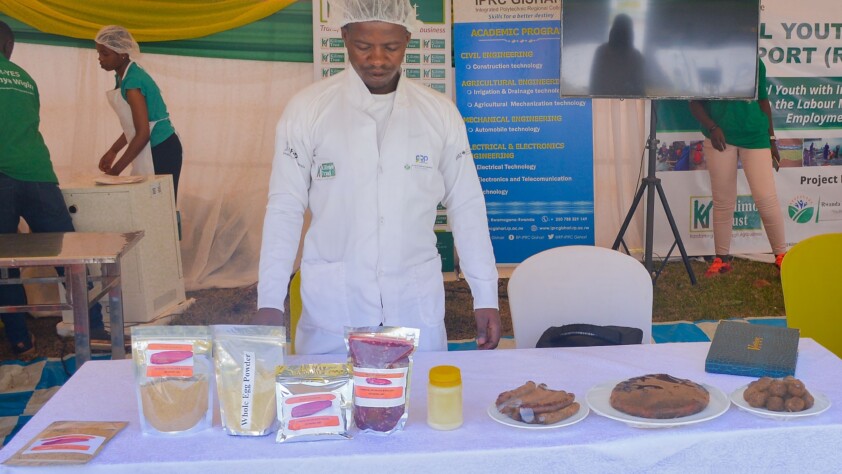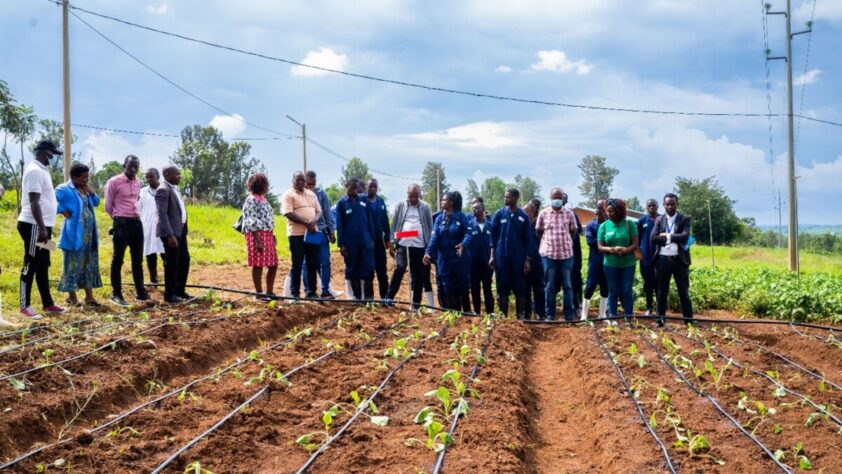G2L (Co. Ltd.) is a Tanzanian cereals, oilseed and pulses processing and trading company with a strong supply chain network that includes more than 13,185 paddy, legumes, maize and sunflower smallholder farmers, farmers’ associations, local Agro-dealers, distributors, and dry commodity traders. The company is a lead firm of Mbarali Rice Consortium, one among the six consortia commissioned under CARI project in Tanzania
At the time CARI project was starting in Mbarali district, smallholder farmers had limited access to financial services especially input loans. Most of banks such as NMB and CRDB were financing few businesses and few schemes.
With support from CARI project, the consortium carried out a survey that justified a lack of relationship between smallholder farmers and financial institutiondue to lack of knowledge from smallholder farmers and lack of information from financial institutions.
Smallholder farmers preferred to borrow from neighbours and local money lenders who charged up to 20% interest rate per month because of easiness to get (no process to follow) compared to banks. Others had bad perceptions that banks have fixed charges, and some are highly charged when making transactions. They also thought that it needed a lot of cash to operate bank accounts. They also lacked information to acquire a loan and the processes to follow.
Banks had inadequate information on schemes e.g., number of farmers in schemes, number of acreages, performance of scheme members, collateral position of farmers and who is the main buyer of their products.
Generally, there was lack of relationship between smallholder farmers and financial institution due to lack of knowledge on the side of smallholder farmers and lack of information on financial institutions’ side.
With support from CARI project, the consortium arranged different introduction meetings between smallholder farmer’s representative and NMB and CRDB officials.
On the other hand, the consortium was facilitated by CARI project to conduct financial literacy training to smallholder farmers (classroom training) in which representatives from financial institutions were invited to explain what the bank packages are, what are the requirements to open bank account and to get loan, how smallholder farmers can save through fixed account to meet her/his long-term goal, how farmers can benefit from fixed accounts.
As a result, the training enhanced the adoption and application of financial best practices among farmers and improved their confidence in use of financial institutions for savings and credit needs.
Therefore, farmers were adequately aware of advantages of using bank and they were willing to receive bank loan instead of receiving loan from neighbors with high interest of at least 20% per month.
As of now, financial institutions (NMB, CRDB and TADB) have sufficient information regarding the scheme (performance, number of scheme members, how they operate and who is the main buyer for their products).
More than 1,700 smallholder farmers have opened bank accounts with NMB and CRDB banks. Thereof, 350 smallholder farmers have received input pre-finance loan from CRDB bank during 2019/2020 cropping season.
Another group of 6,000 smallholder farmers are willing and have registered themselves to receive input pre-finance loan from TADB and CRDB in 2020/2021.


